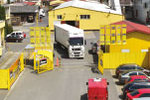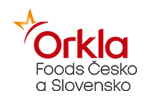Supplier Code of Conduct
Supplier Code of Conduct
INTRODUCTION
The Orkla Group strives to conduct business in a responsible manner, based on the duty to respect human rights and labour rights. As such, Orkla strives to take care of people’s health and safety, protect the environment, prevent corruption, and apply sound business practices throughout our operations.1 Our suppliers and partners can expect that our purchasing practices stand to strengthen, rather than undermine, their ability to deliver on our requirements relating to people, society, and the environment.
To make Orkla’s position clear to our suppliers2, we have set up this Code of Conduct (hereinafter referred to as “CoC”). This CoC is based on the Universal Declaration of Human Rights, the ETI Base code, UN Global Compact’s 10 principles for sustainable development, the UN Guiding Principles on Business and Human Rights and the OECD Due Diligence Guidance for Responsible Business Conduct, to which Orkla is committed. The CoC has been approved by the Orkla Management Team.
Orkla will, when selecting suppliers, in addition to other quality elements and commercial aspects, consider compliance with this CoC. The CoC outlines a minimum standard of conduct. We expect that our suppliers always try to exercise good judgement, care, and consideration by following both the requirements and the intentions of the CoC. Furthermore, we expect our suppliers to be transparent and have an open dialogue with us about challenges they encounter as part of their operations.
When this CoC has been communicated to a specific supplier, it shall be regarded as a contract document and as an integral part of any contract entered between the Orkla company and the supplier in question.
In addition to adherence to this CoC, Orkla expects suppliers to comply with all applicable laws and regulations in the countries of operation as well as treaties, international standards, and regulations relevant to their business operations. Where differences exist between applicable laws, regulations and this CoC or requirements of the contract with the supplier, suppliers shall follow the strictest requirements.
Orkla will primarily use the latest version of SMETA3 as the auditing standard when assessing compliance with this CoC.
SCOPE OF APPLICATION
This CoC applies to suppliers – including, but not limited to contractors, agents, and consultants – who have a contractual obligation to comply with it. This includes everyone acting on behalf of or representing the supplier. Orkla further expects its suppliers to use their best efforts towards ensuring that equivalent standards are complied with and respected within their respective supply chain based on the principle of leverage in accordance with international best practice.REQUIREMENTS
1. HUMAN RIGHTS AND LABOUR STANDARDS
Suppliers must exercise human rights due diligence to identify, prevent, and mitigate human rights risks. As such, suppliers must account for and address both potential and actual adverse impacts on human rights linked to their own activities, products, or services. Attention must be paid both to risks directly linked to the supplier’s own activities and to risks linked to sub-suppliers or other business relationships. This means to embed responsible business conduct into the supplier’s policies and management systems; to undertake due diligence by identifying actual or potential adverse impacts on issues; ceasing, preventing, or mitigating them; to track implementation and results; communicate how impacts are addressed; and to enable remediation when appropriate.1.1 No forced, bonded, or compulsory labour
Suppliers must not permit forced, bonded, or indentured labour, involuntary or exploitative prison labour, slavery, or trafficking of persons. Suppliers, including their recruitment agencies, must not engage in or tolerate abuse of vulnerability, deception, restriction of movement, physical or sexual violence, intimidation and threats, retention of identity documents, withholding of wages, debt bondage, abusive working and living conditions, excessive overtime, or any other kind of exploitation or abuse. All work must be voluntary, and workers must be free to leave work at any time or terminate their employment without penalty if reasonable notice is given as per worker’s contract.1.2 No child labour
Child labour4 must be prohibited and prevented. Suppliers shall take the appropriate measures to ensure that no child labour occurs at their own place of production or operations or at their sub-contractors’ sites of production or operations. Suppliers must under no circumstances employ individuals under the age of 15, under the legal minimum age for work or under minimum age for completing mandatory schooling as specified by local laws, whichever is higher. Young persons under the age of 18 must not be engaged in work that is hazardous to their health or safety, including night work.
Policies and procedures for remediation of child labour shall be established, documented, and communicated to personnel and other interested parties. Adequate support shall be provided to enable such children to attend and complete compulsory education.
The supplier shall have a certified copy of an official document which shows the worker’s date of birth. In countries where this is not possible, the factory shall implement an appropriate method for evaluating the age of its workers.
1.3 Freedom of association and collective bargaining
All workers, without distinction whatsoever and irrespective of sex, must have the right to lawfully form, join or not join labour unions, bargain collectively, seek representation and join workers’ councils, in accordance with local law and international conventions. Workers’ representatives shall not be discriminated and shall have access to carrying out their function of representation in the workplace. Where the right to freedom of association and collective bargaining is restricted under law, the employer must allow the development of parallel means for independent and free association and bargaining.
Where possible, union or committee meetings should be organized in a way that allows participation for workers of all genders, and in general reflects the diversity of its workforce.
1.4 Non-discrimination, diversity, and inclusion
There shall be no discrimination in hiring, compensation, access to training, promotion or termination of work based on ethnic background, religion, caste, age, disability, gender, marital status, pregnancy, sexual orientation, union membership or political affiliation. All workers with the same experience and qualifications should receive equal pay for equal work. We expect our suppliers to carry out equal pay measurements.
Measures shall be established to protect workers from sexually intrusive, threatening, insulting or exploitative behaviour, and from discrimination or termination of employment on unjustifiable grounds, e.g., marriage, pregnancy, parenthood, or HIV status.
Equal opportunities shall be provided in all aspects of training and personal and professional development.
Suppliers should value and respect diversity, equity and inclusion and are encouraged to demonstrate a commitment to building and maintaining a diverse workforce. Suppliers are encouraged to implement targeted measures within this area such as for example, representation targets on gender and ethnicity. We also encourage our suppliers to have specific policies for disabled and LHBTQ+ persons in place.
1.5 Recruitment fees
The supplier ensures that throughout the hiring process and employment period, no deposits (monetary or otherwise) are collected from employees, including temporary, seasonal, and migrant labour and employees provided by agencies, recruiters, or brokers. In cases where a fee was collected in violation of this guideline, the supplier shall promptly pay, as appropriate, all such fees either directly to labour contractors/ agencies or other providers of labour, or promptly reimburse the effected worker.51.6 Wages and benefits
Wages and social benefits shall meet, at a minimum, national legal standards, or industry standards, whichever is higher. Wages should be enough to meet basic needs and provide some discretionary income. Social benefits shall at least be in accordance with national law or the prevailing industry standard, whichever is highest. All workers shall be provided with a written contract of employment in a language they understand outlining their wage conditions and method of payments before entering employment. Deductions from wages as a disciplinary measure shall not be permitted.
1.7 Working hours and overtime
Workers shall be granted annual leave and sick leave, to which they are entitled according to national legislation, without any form of negative sanctions. In case of pregnancy, female workers shall be given maternity leave in accordance with the national legislation. Working hours, resting hours, overtime and breaks shall comply with national laws and industry standards, whichever affords greater protection. Working hours must not exceed 48 hours per week. Workers shall be provided with at least one day off for every 7-day period.
Overtime shall be voluntary and limited. Recommended maximum overtime is 12 hours per week (i.e. the total working week, including overtime, shall not exceed 60 hours). Exceptions to this are accepted when regulated by a collective bargaining agreement. Workers shall receive overtime pay. The pay shall, as a minimum, be in accordance with requirements in applicable law.
1.8 Harassment, abuse, and inhumane treatment
Physical or mental abuse or punishment, or threats of physical or mental abuse, sexual or other harassment and verbal abuse, as well as other forms of intimidation, shall be prohibited.1.9 Short-term contracting
Obligations towards employees based on international conventions and social security laws, and regulations arising from the regular employment relationship, shall not be avoided using short-term contracting (such as contract labour, day labour, sub-contractors, or other labour relationships). The duration and content of apprenticeship programs shall be clearly defined.1.10 Land rights
Suppliers must obtain, maintain, and keep current all required environmental permits, approval and registrations, their operational and reporting requirements must be followed.Suppliers must respect the land rights of indigenous people and local communities affected by their operations and sourcing practices. All negotiations regarding their property or land, including the use of and transfers of it, adhere to the principles of free, prior, and informed consent (FPIC), contract transparency and disclosure. Suppliers must not engage in any form of land-grabbing.
1.11 Marginalized populations
Production and the use of natural resources shall not contribute to the destruction and/or degradation of the resources and income base for marginalized populations, such as in claiming large land areas, use of water or other natural resources on which these populations are dependent.2. HEALTH AND SAFETY
2.1 Occupational health and safety
Suppliers must ensure that their workers’ potential exposure to safety hazards such as those associated with electrical and structural integrity, machinery, chemicals, toxins, vehicles, fall hazards, and facility layout, as well as exposure to chemical, biological, and physical agents is identified, assessed, and controlled. Suppliers must provide well-maintained personal protective equipment at no cost.Suppliers must provide their workers safe and healthy working conditions, including potable drinking water, adequate sanitation, lighting, temperature, ventilation, and suitable facilities for women’s health needs.
Workers shall receive relevant and documented health and safety training in their primary language, and such training shall be repeated on a regular basis.
2.2 Physically demanding work
Suppliers must identify, evaluate, and control worker’s exposure to the hazards of physically demanding tasks, including manual material handling and heavy or repetitive lifting, prolonged standing, and highly repetitive or forceful assembly tasks.2.3 Occupational injury and illness
Suppliers must put in place procedures and systems to prevent, manage, track and report occupational injury and illness, provide necessary medical treatment, investigate cases, and implement corrective actions to eliminate their causes, and facilitate the return of workers to work.2.4 Emergency preparedness
Suppliers must identify and assess potential emergency situations and events and minimize their impact by implementing emergency plans and response procedures including emergency reporting, worker notification and evacuation procedures, worker training, drills, appropriate fire detection and suppression equipment, adequate exit facilities and first-aid supplies.2.5 Housing conditions
Accommodation, where provided either by the supplier, a labour agent/agency, or other affiliate, shall be clean, safe, adequately ventilated and structurally maintained. Facilities should promote basic human rights dignity through access to potable water, sanitary food preparation areas, reasonable personal space, adequate heat and ventilation, clean and well-maintained bathrooms, and showers. All facilities must have clear and unrestricted exits.2.6 Health and safety communication
Suppliers must ensure that workers receive appropriate workplace health and safety information, training, and warnings in the language of the worker or in a language the worker can understand for all identified workplace hazards they are exposed to. Training is provided prior to the beginning of work and regularly thereafter. Workers must be encouraged to raise any health and safety concerns without retaliation.
3. ENVIRONMENT
3.1 Hazardous substances
Suppliers must identify, label, and manage chemicals, waste and other materials posing a hazard to humans or the environment to ensure their safe handling, movement, storage, use, recycling or reuse, and disposal. Suppliers sourcing agricultural commodities must perform and promote a reduced use of chemicals and fertilizers across their supply chain and towards farmers.3.2 Emissions
Suppliers must monitor, track, and document its emissions to air, water, and soil from its facilities, as well as the wastewater generated by its operations, to identify aspects that they can control and influence fostering opportunities for improvement and set targets to minimize emissions. All output must be monitored, tracked, and documented.3.3 Greenhouse gas emissions
Suppliers are highly encouraged to set science-based greenhouse gas emission reduction targets on scope 1, 2 and 3 as well as to measure the carbon footprint of the products sold to Orkla.3.4 Resource efficiency
Suppliers must take appropriate steps and set targets to minimize the consumption of natural resources like materials, energy, and water, as well as put in place saving strategies for these resources. The performance must be monitored, tracked, and documented.3.5 Waste management
Suppliers must implement a systematic approach to identify, manage, reduce, and responsibly dispose of or recycle solid waste.3.6 Soil quality
Suppliers must take appropriate steps and set targets to preserve soil quality and minimize their impacts on soil, as far as possible. Suppliers sourcing agricultural commodities must perform and promote good farming agricultural practices across their supply chain and towards farmers.3.7 Biodiversity
Suppliers must take appropriate steps to ensure that biodiversity is preserved throughout their operations and their entire supply chain.3.8 Zero deforestation
For relevant materials, the Orkla Zero-Deforestation Policy and the Orkla Policy for Sustainable Palm Oil should be adhered to.3.9 Animal welfare
For products based on animals, due consideration for the animals’ welfare shall be ensured through the whole value chain. The Orkla Animal Welfare Policy should be adhered to.4. BUSINESS INTEGRITY AND ETHICS
4.1 Suppliers shall not tolerate and shall work against corruption in all its forms in the public and private sector. The supplier shall comply with applicable laws concerning bribery, corruption, fraud and any other prohibited business practices and there are adequate procedures in place to prevent bribery in all commercial dealings undertaken by the supplier. The supplier shall not offer, promise, or give any improper benefit, favour, or incentive to any public official, international organization or other third party directly or indirectly.4.2 The supplier shall not, directly, or indirectly, offer gifts to Orkla employees or persons representing Orkla or anyone closely related to these, unless the gift is of insignificant value. Suppliers shall never offer or accept gifts of cash or cash equivalents. Hospitality, such as social events, meals or entertainments may be offered if there is a legitimate business purpose involved, and the cost is kept within reasonable limits. Travel expenses for the individual representing Orkla shall be paid for by Orkla. Hospitality, expenses, or gifts shall not be offered or received in situations of contract bidding, negotiations, or award.
4.3 Suppliers shall avoid all conflicts of interest while working for Orkla. A conflict of interest occurs when a representative of a supplier seeks to further his/her personal interest, or that of a friend or relative, due to his/her position as a representative of the supplier. Suppliers are required to report any situations of potential or apparent conflicts between their personal interests and the interests of Orkla.
4.4 Suppliers shall not take part in any form of money laundering and shall implement measures to prevent financial transactions from being used to launder money.
4.5 Suppliers must uphold fair business, advertising, and competition standards. The supplier shall under no circumstance cause or be part of any breach of general or special competition regulations and laws, such as illegal cooperation on pricing, illegal market sharing or other practice in violation of applicable competition laws.
4.6 Suppliers shall implement appropriate technical and organisational measures to ensure that any processing of personal data as part of the supplier's contractual relationship with Orkla is in accordance with applicable data protection legislation.
5. MANAGEMENT PRACTICES
5.1 Management systems
The supplier shall take positive actions to respond to the requirements of this CoC and to incorporate the principles of the CoC into its operations. The supplier is also encouraged to have adequate policies, risk awareness, risk assessment and due diligence processes in place. The supplier must also take steps to follow-up on these requirements to their own suppliers and sub-suppliers. The implementation of this CoC is a dynamic rather than a static process. Suppliers should seek continuous improvement through written performance objectives, targets, and implementation plan to improve their social, environmental, and occupational health and safety performance.
5.2 Grievance mechanism
The supplier must provide means for confidential complaint reporting to all workers, taking into consideration the best practice guidelines of the UNGP, and must ensure that processes are in place to ensure that workers who raise concerns and speak up in good faith are protected from retaliation. Issues should be addressed in a timely and respectful manner and include documentation of corrective actions. Suppliers must aim to have an appropriate gender balance in the composition of grievance committees that processes complaints.
5.3 Accuracy and traceability
Suppliers are committed to transparency, verifiability, and accuracy in their dealings, while respecting their confidentiality obligations. All accounting information must be correct, registered, and recorded in accordance with laws and regulations. When the supplier uses sub-suppliers in connection with a delivery to Orkla, all links shall be traceable concerning the manufacturing location with respect to any delivery to Orkla. If requested by Orkla, the first-tier supplier shall inform Orkla about all second tier (in some cases also third tier) suppliers and their manufacturing locations.
COMPLIANCE WITH THIS CODE OF CONDUCT – IMPROVEMENTS
Auditing and monitoring
To evaluate compliance with this CoC, Orkla may conduct on-site audits of suppliers and their production sites. The supplier shall maintain appropriate records to demonstrate compliance and shall be able to provide reasonable information when requested by Orkla. We reserve the right to monitor compliance by inspections, conducted by Orkla personnel or independent, third-party auditors. An auditor appointed by Orkla shall, if requested by Orkla, be given access to the records and to other information to verify such compliance. Suppliers may also be requested to do self-assessment evaluations6 of their own business based on this CoC. Audits will be carried out in accordance with the methodology of international standards, such as latest version of SMETA, to check against the requirements of this CoC. The type(s) of audit(s) which will be conducted shall, if possible, be agreed between Orkla and the supplier in advance.
Non-compliance and corrective actions
This CoC sets the standard expected to be met by all our suppliers throughout the value chain. If the requirements in this CoC are not met by a supplier, the parties will discuss corrective actions through an open dialogue. The supplier shall do its utmost to implement corrective actions as soon as possible, and it shall inform Orkla about any such actions. If it is established that a supplier is unwilling or unable to carry out corrective actions which Orkla finds necessary to comply with this CoC, or (ii) the supplier or any of its sub-suppliers has committed a substantial breach or repeated breaches of the requirements in this CoC, Orkla is entitled to terminate the business relationship and any contract(s) with the supplier. Such termination shall be effective from the time stated in a written termination notice from Orkla.
Evaluation and improvements
Orkla expects that the suppliers continuously and systematically evaluate their compliance with this CoC. We furthermore expect that improvement measures, whenever needed, are implemented by the suppliers. Orkla will also continuously evaluate and, if needed, improve our own policies and purchasing practices to facilitate the suppliers’ and their sub-suppliers’ compliance with this CoC.Boycott and sanctions
Supplier shall comply with trade sanctions relevant for the engagement with Orkla. Orkla will avoid buying from a country when there is a broad international consensus to boycott the country. Orkla will also avoid engaging with industries or companies when there is a broad consensus to boycott due to the negative social, environmental, or ethical effects of the products, services, or companies. We expect our suppliers to implement a similar policy.
Reference 1:
UN’s Global Compact's 10 principles Four key areas:
HUMAN RIGHTS - LABOUR STANDARDS - ENVIRONMENT - ANTI-CORRUPTION
Reference 2:
List of references to international conventions and declarations: The Universal Declaration of Human Rights (UN 1948)
Freely Chosen Employment
ILO Conventions Nos. 29, 105 and 181
Regular Employment
ILO Convention No. 95, 158, 175, 177 and 181
Freedom of Association and the Right to Collective Bargaining ILO
Conventions Nos. 87, 98, 135 and 154
No Child Labour
UN Convention on the Rights of the Child
ILO Conventions Nos. 138, 182 and 79 ILO Recommendation No. 146
Marginalized Populations
UN Covenant on Civil and Political Rights, art. 1 and 2
No Discrimination
ILO Conventions Nos. 100 and 111
UN Convention on Discrimination Against Women
Safe and Hygienic Working Conditions
ILO Convention No. 155
ILO Recommendation No. 164
Adequate Wages
ILO Convention No. 131
No Excessive Working Hours
ILO Convention No. 1 and 14
Harsh or Inhumane Treatment
UN Covenant on Civil and Political Rights, Art. 7
More information about the International Labour Organization (ILO) and the Ethical Trading Initiative (ETI).
Reference 3:
An overview of the Orkla group companies is found at www.orkla.com.
2 Definitions: Supplier is the contractual partner responsible for the product or service supplied to Orkla and any of its subsidiaries.
3 Sedex Members Ethical Trade Audit
4 Child labour is defined as work conducted by children, which interferes with a child’s right to healthy growth and development and denies him or her the right to quality education. The minimum age for workers shall not be less than the age of completion of compulsory schooling and, in any case, not less than 15 years (14 in certain countries according to ILO convention 138).
5 If fees are charged to workers by a third-party recruitment agency, these must be to cover the cost of secondary expenses only, such as travel expenses. Supplier should ensure that such fees are reasonable and should not provide workers with a loan or wage advance to cover the cost of fees paid by any worker to a recruitment agency.
6 Supplier self assessment evaluations may be conducted ad hoc or systematically via either Orkla internal or external systems we find most relevant for the supplier. External system may be Sedex
Certificates

Byšice







